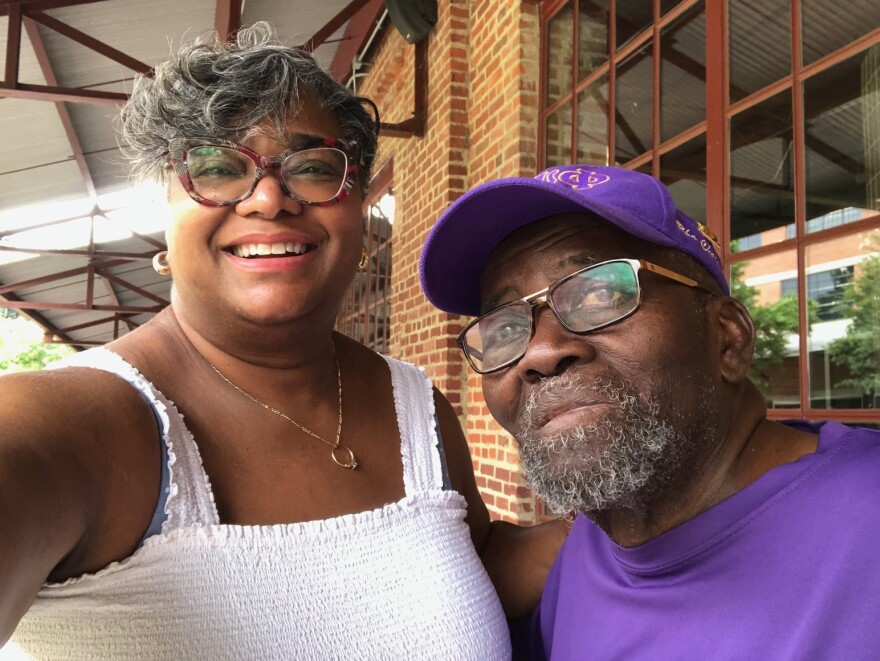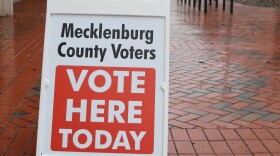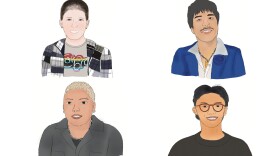This week marks the 60th anniversary of the March on Washington for Jobs and Freedom. In 1963, Civil Rights leader Martin Luther King Jr. gave what would become his famous “I Have a Dream” speech on the National Mall. The speech began like this:
“Five score years ago, a great American in whose symbolic shadow we stand today, signed the Emancipation Proclamation. This momentous decree came as a great beacon light of hope to millions of Negro slaves."
King read his typed, prepared speech. But with encouragement from famed gospel singer Mahalia Jackson, he began to preach, off script, about his “dream.” It was a message years in the making.
“One day, right there in Alabama, little Black boys and Black girls will be able to join hands as sisters and brothers. I have a dream today!” said King.
Several months before that famous 1963 speech, King gave a similar speech on November 27, 1962, in Rocky Mount, North Carolina.
The Reverend Omotolokun Omokunde was a 15-year-old student at Booker T. Washington High School in Rocky Mount when he got the chance to meet King and hear him speak.
“One day right down there, little Black boys and little Black girls will be able to join hands with little white boys and little white girls and walk the streets as brothers and sisters,” King said in the 1962 speech. “I have a dream, one day, right here in Rocky Mount, North Carolina, sons of former slaves and sons of former slave owners will meet at the table of brotherhood.”

Inge: That gave me chills. I don’t know about you. So, please tell me, Dr. Omokunde, about that night.
Omokunde: Well, that night, we’d have to go back about a month before that night. Miss Esmaeralda Hawkins, world history teacher. And she taught me world history, she tutored me in world history. And what she did for me was made me the top student in World History. Now what happened, there was a contest. The winner was already set for the contest. I think it was rigged. I won and the late Dr. Brenda Armstrong won.
Inge: Ah. I know Dr. Brenda Armstrong, from Duke University.
Omokunde: Yes. Brenda was the valedictorian of our class. Brenda was my heart. We went to Mt. Pisgah Presbyterian Church together. And Ms. Hawkins loved this little chocolate boy that she had taught world history and said education will take you places that won’t tease you, but you’ll be teaching them.
So, Nov. 27, 1962, Miss Hawkins said, "When you shall have finished this experience, you will be the better for it." She taught me how to put the endings on words so that I could speak better. Because I had preached my first sermon at 12 years old at Mt. Pisgah.
Inge: So, you already knew you wanted to be a minister.
Omokunde: Right! And so, then my grandmother washed, starched and ironed my underwear. I had on starched underwear.
Inge: You were going to see Dr. Martin Luther King.
Omokunde: I didn’t know that. My grandfather had passed in ’58. My Uncle Lindbergh, Charles Lindbergh Stith, came and told me to come with him. My other uncle, Thomas Stith, got me a new suit from Rosenbloom Levy, the most prestigious store in Rocky Mount. I had this blue suit and my uncle taught me how to tie a Windsor knot with a white shirt and a dark tie. And a handkerchief in my pocket. A squared handkerchief. And I had on new Buster Brown shoes. She put olive oil in my full head of hair and made waves go to the side rather than the front and the back.
And I met Miss Hawkins and my buddy, Dr. Brenda Armstrong at the door of the library at Booker T. Washington. Ms. Armstrong opened the door and walked in and there sat Dr. Martin Luther King. And for an hour, Brenda and I interviewed Dr. King and had a conversation with Dr. King. And somehow, I became a great philosopher at that time.
Inge: At 15.
Omokunde: I said, "Dr. King, let’s revisit the Mahatma Gandhi era in your life. And why would you choose this person with a little cloth on to be a symbol for what you wanted to do?" I said, "Wait a minute Miss Hawkins, I’m talking to King now."
Inge: I can’t imagine. I can’t imagine.

Omokunde: I was so elated! Brenda had a Coca-Cola with a straw in it and a napkin. Because that is what ladies did. Boys did not drink out of straws in North Carolina in 1962. I had a whole Coke and hers had a straw in it and napkin. Miss Hawkins had coffee and Dr. King had coffee.
Well, little did I know, when we walked out I did not know what was going on. I knew world history but I didn’t know current history, obviously. But I knew something was going on because folks started talking. There was a buzz in the African American community that King is coming. But so, what happened, we walked out and the audience was in the Booker T. gym. And my grandmama was there. Big Mama was there. My Uncle Bergh was there. My aunts were there. I was walking in, almost towards the stage. I thought I was going to be on the dais! The ushers, the “church police,” said your grandmama is sitting over there boy. Go in there and sit down like you got some sense. And so I did.
I was walking on cloud nine. I was elated because King was like an uncle or a daddy that was right. From that time on I knew, no matter what I did, being a preacher was going to be part of it. I became a Martin Luther King follower at that point.
Inge: It changed your life.
Omokunde: It changed my life.
Today, the Reverend Omotolokun Omokunde is 75 years-old and lives in Oxford, North Carolina, a retired pastor of Timothy Darling Presbyterian Church. He is a proud graduate of Johnson C. Smith University, the Interdenominational Theological Center in Atlanta and Virginia Union University.
Omokunde’s classmate, Dr. Brenda Armstrong, who also interviewed King that day, was one of the first African American students to attend Duke University. The pediatric cardiologist spent more than 20 years at the Duke University School of Medicine as associate dean for admissions. She died in 2018.
A special thank you to N.C. State Professor Jason Miller for his role in discovering the long-lost recording of Martin Luther King Jr.’s “I Have a Dream” speech in Rocky Mount.







